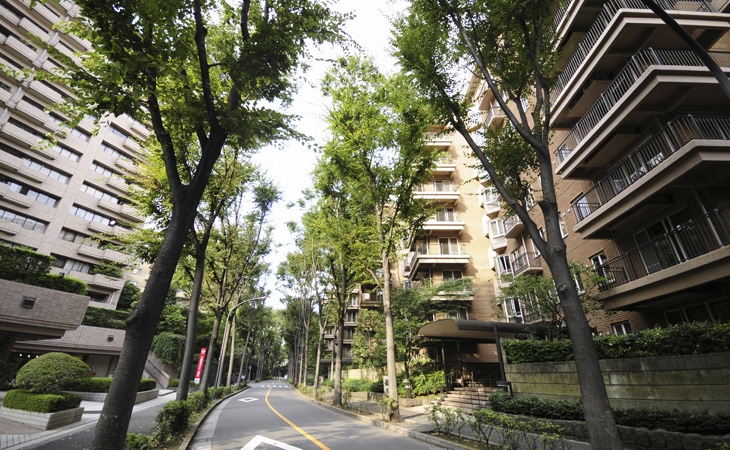According to Benjamin Franklin, two things are constant in life: Death and Taxes. No one can escape the payment of taxes, either directly or indirectly.
Due to its technical nature, Japan’s inheritance tax has always been a subject of confusion among expatriates and foreign nationals. Thus, it is imperative for any foreigner seeking to stay in Japan for any purpose to understand the intricacies of the Japanese inheritance tax laws.
Inheritance tax is levied on properties and money received from a deceased person. As an expat living in Japan, it is important to be familiar with the Japanese inheritance tax laws to prepare for the inheritance tax fee you’d pay if you receive an inheritance in Japan or from a family abroad. The Japan inheritance tax liability depends on specific criteria: “jusho” (having a residency in Japan), length of the residence, location of the assets (either in Japan or overseas), and visa status.

How to calculate the Japan Inheritance Tax?
Japan has the highest inheritance tax rate globally, with the tax rate starting at 10% but can go as high as 55% depending on the increment in the inheritance. There is a basic exemption of ¥30 million-plus ¥6 million for each statutory heir in Japan.
Consequently, individuals are exempted from paying the inheritance tax if the net inherited asset is less than the above figure after removing expenses such as funeral fees. However, inheritance tax will be imposed if the inherited assets exceed this figure. You subtract the inherited assets’ value from the basic exemption value to get the total taxable assets.
In Japan, inheritance taxes are imposed on the beneficiaries of the inheritance and not the estate. Calculating the inheritance tax depends on the number of statutory heirs that will benefit from the inheritance. The basic statutory calculation is based on the Japanese civil code. In the Japanese civil code, the deceased’s spouse is entitled to 50% of the total assets, while the remaining assets are divided equally among the children. Concurrently, in the event of the inheritance tax, the decedent’s spouse pays 50% of the inheritance tax while the remaining 50% is split equally among the children.
Inheritance tax should be paid to the National Tax Agency within ten months of the decedent’s death, not when the inheritance was received. Failure to pay at this stipulated time attracts stiff penalties with the punishment ranging from fines to imprisonment.
Is there a tax on inheritance from overseas in Japan?
The answer is not always so simple for foreigners because several factors determine your qualification status for inheritance tax in Japan. The easy answer is if you qualify in Japan for inheritance tax on Japan-based assets that you are a beneficiary of, you also qualify to be taxed on inherited assets you receive from overseas.
If your total inheritance is ¥30 million or less, then inheritance tax planning is likely not something you need to worry about, as you will be under the taxable threshold for Japan. If you expect to receive an inheritance worth more than ¥30 million, it may make sense to talk to one of our financial advisers for guidance on whether you need to take things further and talk to an accountant in Japan.
Who is obligated to pay Inheritance Tax in Japan?
Japan’s inheritance tax laws apply to both nationals and foreigners. Citizens who receive any inheritance above the basic exemption are obligated to pay the inheritance tax regardless of whether the inheritance is located in Japan or overseas.
Inheritance tax Japan laws become complicated for foreigners and expatriates as different criteria determine whether or not an expat will be subject to the Japanese inheritance tax laws. As a foreigner, the length of stay in Japan doesn’t matter if you have a table 2 visa (permanent resident, long-term resident, spouse/child of a national/permanent resident). If you fall in this category or have Japanese citizenship when receiving the inheritance, you must pay the inheritance tax.
Expatriates with a table 1 visa are only exempted from paying the inheritance tax if they are considered temporary citizens. To be classified as temporary citizens, they must have passed the residency time test, which implies that they must have stayed in Japan for less than ten years in the past fifteen years.
Let Us Help You Grow Your Wealth
Talk with us today!
Changes to the Japan Inheritance Laws
The Japanese inheritance tax laws have been revised and amended numerous times. However, significant changes to the inheritance tax laws were made in 2013, 2017, and 2021. Before 2013, if an inheritance beneficiary resides outside Japan when receiving an inheritance, they will only pay inheritance tax on assets located in Japan.
The modification of the 2013 inheritance tax law meant that both short-term and permanent residents would be required to pay inheritance tax laws if the decedent or beneficiary has residency in Japan at the time of death.

This stringent law was changed in 2017 to exempt expats who have lived in Japan for less than ten years from paying the inheritance tax. A foreigner who has lived in Japan for less than ten years will only have to pay inheritance tax on inheritance received in Japan under this law. Inheritances received from overseas will not be subject to the inheritance tax. However, suppose the foreigner renews his visa, such that the length of stay exceeds ten years, or they take another visa for long-term residency. In that case, they will be taxed on inheritances received in Japan and overseas.
Another interesting twist in this change is that if the expatriate leaves after spending more than ten years in Japan, they will still need to pay the inheritance tax on inheritances received overseas within five years after leaving Japan. On April 1st, 2018, the rules were changed again. As a result, the five-year tail rule was relaxed, and expatriates no longer needed to pay inheritance tax after leaving Japan.
However, in 2021, reforms were made to the inheritance tax Japan laws concerning the residency period test (“ten out of fifteen-year time rule”) regarding the donor or decedent. Here, the donor or decedent was exempted so that even if they did not pass the time residency test, the inheritance tax would not be triggered. Moreover, it is important to note that modifications were also made to the five-year tail rule.
How to minimize the impact of Inheritance Tax in Japan?
There are ways an expatriate can reduce the amount of inheritance tax they will pay if they fall into the category of those who will pay this tax. However, since no trusts in Japan can be used to reduce inheritance tax, a better method of reducing inheritance tax is investing in real estate and using life insurance to minimize inheritance tax liability.

With real estate, the tax assessed value of property in Japan is usually lower than the actual market value, and this will reduce the tax on the asset compared to the value paid as inheritance tax. Our real estate experts can advise you on property options in Japan.
In addition, expatriates can use other exemptions to reduce their inheritance tax burdens, including mortgage exceptions, foreign tax credits, donations to public organizations, and retirement allowances.
Life insurance is a straightforward option that can be used to pay any inheritance tax bills in Japan if you pass away. It is possible to approximately estimate the current inheritance tax bill and take out a policy to cover this. The cost of the life insurance policy will be cheaper than the inheritance tax bill. The Argentum team can advise you on the potential tax bill and available insurance options for expats.
Lastly, there are additional options for higher net worth individuals residing in Japan, where we can use US-based trusts for estate planning. This type of planning is specialized and makes sense for individuals who want to structure their assets to minimize the future inheritance tax liability to their loved ones. However, the overall asset base should be more than around 1.5 million USD for this to make sense. To learn more about this option, contact us to set up a consultation with one of our directors.
Final Thoughts
Inheritance tax planning is a massive issue for any resident of Japan. The best time to plan to mitigate the effects of this tax is now before any event triggers the tax event.
If you are worried about inheritance tax planning, contact us for a free initial consultation. Argentum is Japan’s premier licensed financial planning firm serving the expat community. We can help you grow and protect your wealth through financial planning and specialized solutions so that you and your family can keep more of it.
Argentum Wealth does not provide tax, legal or accounting advice. This material has been prepared for informational purposes only, and is not intended to provide, and should not be relied on for, tax, legal or accounting advice. You should consult your own tax, legal and accounting advisors before engaging in any transaction.
Argentum Wealth Management is licensed through the Japanese Financial Services Authority to give financial advice. The FSA strongly recommends that you only receive financial advice and services from a locally licensed and regulated firm.













